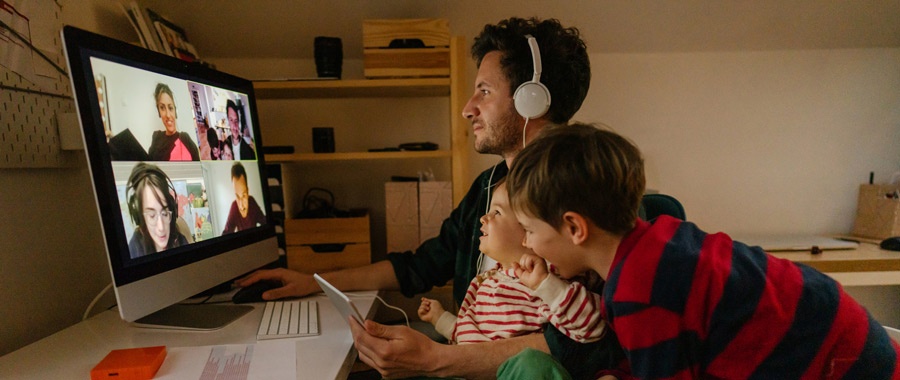Celebrating Ridván, the joyous festival commemorating the declaration of Bahá’u’lláh as the Messenger of God for this age, stands as a poignant testament to the dynamism of the Bahá’í Faith. It exhibits a unique capacity to adapt to the vicissitudes of our modern world, including the trials of distance that can separate us physically but never spiritually. This article elucidates the multifaceted nature of celebrating Ridván, particularly when faced with constraints that compel adherence to social distancing protocols.
In a world where voices may echo in solitude, the act of coming together, albeit virtually, shines as a beacon of unity and resilience. The metaphor of a garden in bloom aptly encapsulates the essence of Ridván; each Bahá’í community member, akin to a flower, contributes to a vibrant tapestry of devotion that transcends geographical barriers. Through innovative approaches to celebrate this festival, individuals can not only honor Bahá’u’lláh’s pivotal moment but can also cultivate a deeper sense of fellowship and spiritual nourishment.
Essential Teachings of Ridván
Rooted in the core tenets of the Bahá’í Faith, the observance of Ridván embraces themes of unity, love, and collective action. The festival spans twelve days, beginning from April 21 to May 2, marking the anniversary of Bahá’u’lláh’s declaration in the garden of Ridván in Baghdad. During this period, Bahá’ís commemorate His proclamation of the “most great name” and recognize the advent of a new era of spiritual enlightenment.
This celebration embodies not only a remembrance of historical significance but also a contemporary call to action. Followers are encouraged to reflect on their contributions to the advancement of global peace and justice. Consequently, Ridván invites adherents to engage in both personal introspection and communal deliberation, particularly resonant in our current time, where physical gatherings may be limited, yet collective spirit can flourish.
Fostering Community Connection
One of the fundamental characteristics of the Bahá’í community is its emphasis on fellowship. During times when traditional gatherings are unfeasible, creative avenues arise that enable an intimate connection. Utilizing technology, Bahá’ís around the globe have embraced virtual meetings and online devotional gatherings to celebrate the festival, allowing the spirit of Ridván to permeate through screens and resonate in hearts.
Video conferencing platforms have become virtual gardens of fellowship, where participants can share prayers, engage in reflections on Bahá’í teachings, and partake in collaborative artistic expressions, such as music and storytelling. This adaptation transforms the physical distance into a shared experience, reinforcing the belief that the spirit of Ridván is not confined by geographical limitations. The potential of human connection deepens, reminiscent of a vast symphony, each individual contributing a unique note that harmonizes with others, creating a rich and evocative melody.
Cultivating a Personal Manifesto
The essence of Bahá’í teachings encourages personal growth and the development of virtue. During Ridván, it is paramount to crystallize individual aspirations in alignment with the principles of the Faith. Creating a personal manifesto—articulating one’s commitments to serve humanity and embody the Bahá’í ideals—can provide a focal point for spiritual elevation.
It is in moments of reflection that the teachings of Bahá’u’lláh resonate most profoundly. Engaging with texts, meditating, and contemplating the virtues encouraged by the Faith can herbalize the mind and spirit. Establishing a routine of spiritual practices can transform the ethereal symbols of the festival into tangible resolutions that are vivid like the spring blossoms of the Ridván garden.
Sharing Acts of Service
Service to humanity is a cornerstone of Bahá’í beliefs. Celebrating Ridván provides a compelling impetus to initiate or continue acts of service, regardless of the physical context. Even amidst constraints, Bahá’ís can harness their collective resources to engage in socially responsible activities, whether through virtual volunteering, fundraising for local charities, or anonymously uplifting a neighbor’s spirits.
Acts of service should be viewed not only as an obligation but as a profound expression of love and kinship. It is in this altruistic labor that the community flourishes like a meticulously tended garden. Each act, regardless of size, contributes to a collective blooming, reinforcing the imperative that love for humanity knows no distance.
Commemorating with Creativity
The festival of Ridván is also a canvas for artistry and expression. Encouraging creative endeavors, such as writing poetry, crafting artwork, or composing music, allows Bahá’ís to depict the beauty of their spiritual journey. Through these mediums, individuals can narrate their experiences, connect with others, and cultivate an atmosphere of inspiration and reflection.
By sharing these creations in online spaces, participants amplify their voices, allowing collective celebrations to flourish in a multi-dimensional manner. The act of creation serves as a cathartic release, inviting others into the heart of one’s spiritual practice and fostering a broader understanding of the Bahá’í teachings. As the stories weave together, they form a rich tapestry of shared experience and divine artistry.
A Closing Reflection
In conclusion, celebrating Ridván, even at a distance, reflects the resilience and adaptability inherent in the Bahá’í Faith. Through the garden of community spirit, calls to service, individual manifestos, and artistic expressions, the themes of unity and love permeate every celebration. Ridván invites Bahá’ís to nurture their connections, even when physical presence is but a dream. It is an affirmation that love transcends space, and the festival serves as a reminder that every heart can bloom, regardless of the distance that lies between them.
